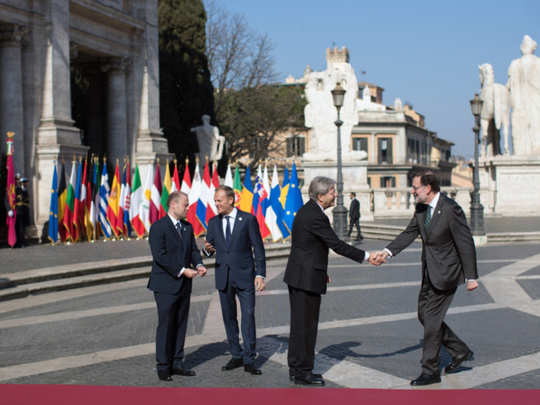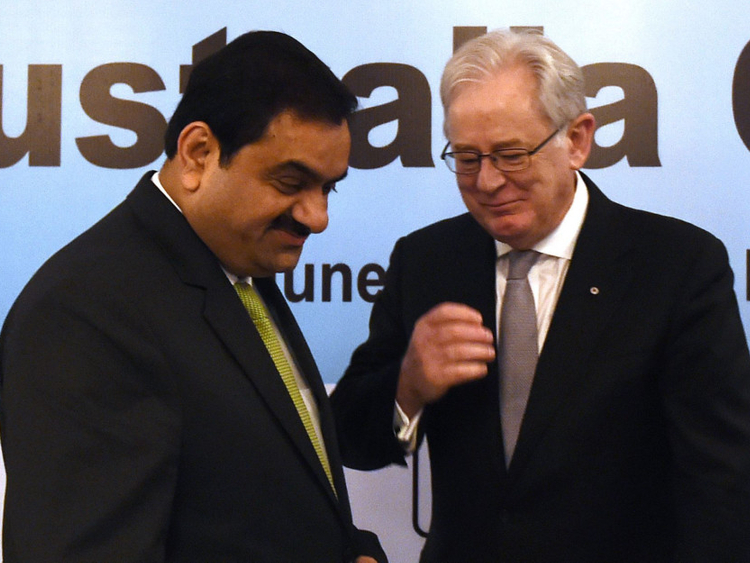
When I rafted the Franklin in the 1970s, I knew the campaign to save that spectacular river, despite local support for damming it, would become one to test that generation. In 2017, stopping the Adani coal mine is a campaign to test this generation of Australians.
In forty years time people will be talking about the campaign to stop Adani like they now talk about the Franklin. “Where were you and what did you do?” they will ask.
This is the environmental issue of our times and, for one, the Great Barrier Reef is at stake. The Adani corporation’s dirty coal mine is an impending disaster with effects which will reach far beyond Australia.
Everywhere I go people ask me about it. They cannot believe that, at a time when we should be drastically cutting the pollution which drives global warming, Australia’s authorities would even consider building the world’s biggest export coal mine.
Lending Gautam Adani, a billionaire, a billion dollars of taxpayers’ money to carry this project into reality would be the political mistake of the decade. The Turnbull government would be literally paying Adani to ride roughshod over Indigenous rights, to contaminate the groundwater of the Galilee Basin, to consign threatened species to the dustbin of history and to increase the already disastrous impact of coral death worldwide.
Thirteen community groups launched the Stop Adani Alliance at parliament house in Canberra this week. The alliance is building the biggest movement in Australia’s environmental history to stop the Adani coal mine in its tracks, to transform Australia to a renewable energy future and to end taxpayer handouts for polluting projects.
The mining and burning of coal threatens our way of life and Australians know it. Polls show a big majority understands that burning fossil fuels spurs global warming and its impacts such as heatwaves, bushfires, floods, droughts and more severe and frequent storms. On Monday, Prime Minister Malcolm Turnbull told the House of Representatives about another disastrous threat: rising sea-levels around Australia and the Pacific.
Coal kills more than coral. In this country, workers are dying of black lung disease and in the Adani corporation’s India more than 100,000 people die of the polluting effects of burning fossil fuels every year.
The proposed monster mine in central Queensland would spew 4.6 billion tonnes more carbon pollution into Earth’s atmosphere already overloaded with greenhouse gases. The mine would end up a hole five times larger than Sydney Harbour. It would suck up billions of litres of ground and surface water each year. It would uproot critical habitat and is likely to kill off the beautiful, endangered Black-throated finch. It would accelerate the destruction of the Great Barrier Reef and the 67,000 jobs the reef sustains.
The Adani coal mine comes with a domino effect: it would unlock one of the biggest untouched coal reserves left on Earth. There is a clutch of other mines that would use Adani’s railway infrastructure to get their projects off the ground. Adani is the key to unlocking a global climate catastrophe and all this would be against the wishes of the area’s traditional owners.
Every day, inaction on climate change is making our unique planet less viable. Australia should rapidly cut carbon emissions and transition to clean energy, embracing all the economic and health benefits that transition will bring including more than a million new jobs by mid-century.
In promoting the mine, Turnbull is hiding behind the drug dealer’s defence — “if I don’t do it, someone else will”. This begs the moral responsibility to the future of Australia, which is one of the wealthiest communities in human history. There is no excuse in pointing to other malefactors.
The ‘Stop Adani Alliance’ brings significant people power to oppose the Adani mine. Already the Alliance represents 1.5 million Australians. There are millions more people all over this country who oppose this dangerous venture.
Just like in the Franklin campaign, this will be a passionate, determined and unstoppable popular movement. This is an issue of conscience. Besides immediate absurdities like the prospect of one billion dollars of taxpayers’ money going to fund the mine, Australians are deeply concerned about the world their grandchildren will inherit and view the crisis unfolding for the Great Barrier Reef with escalating trepidation.
Adani’s political backers will continue to underestimate this community feeling at their own peril. Those who say the mine can’t be stopped have forgotten the unbeatable power of a majority of people standing up for what they believe in.
— Guardian News & Media Ltd
Bob Brown is an Australian politician, author, photographer and lifelong activist who rose to prominence when he led the campaign to save the Franklin River in the 1980s. After 10 years in the Tasmanian parliament, he was elected to the Senate in 1996, where he served for 16 years. He was leader of the Australian Greens from 2005 to 2012, when he retired from the parliament to establish the Bob Brown Foundation.









